

Up against a heavily Democratic Legislature, fossil fuel firms funnel cash to politicos they’ve previously ignored to win precious votes.
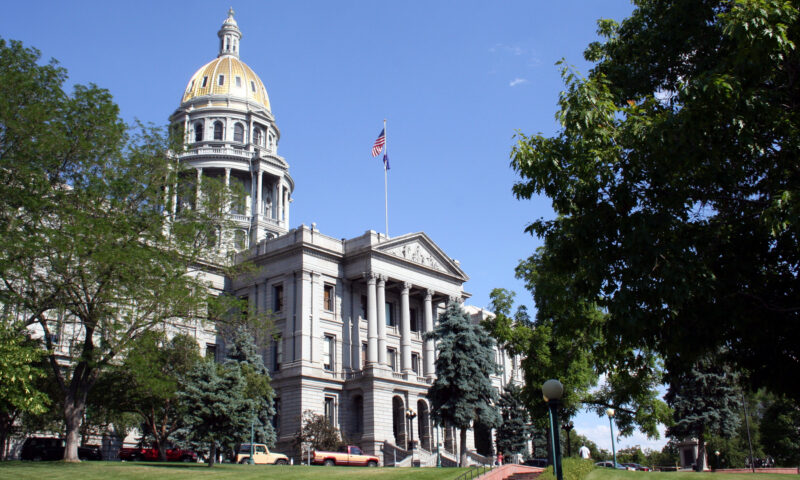

If OK’d, measure would be the first nationwide to require climate impact analysis in investment decisions.
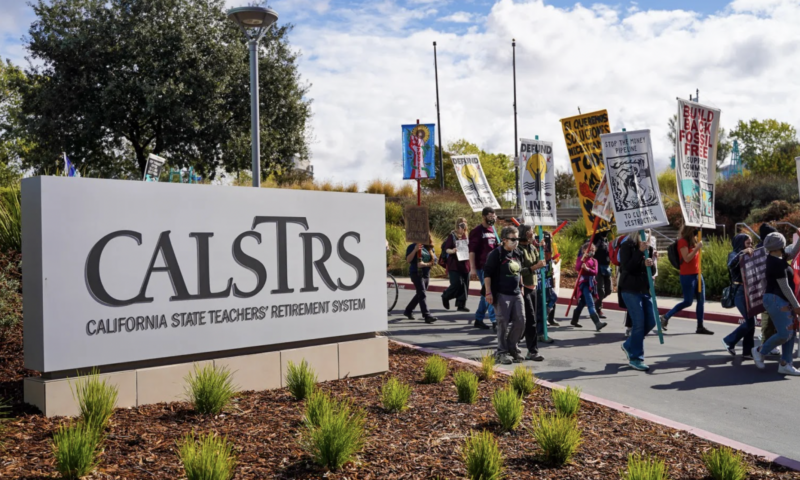
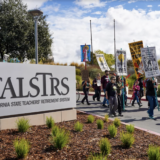
Sen. Lena Gonzalez says the state Legislature can sometimes stymie the democratic process.
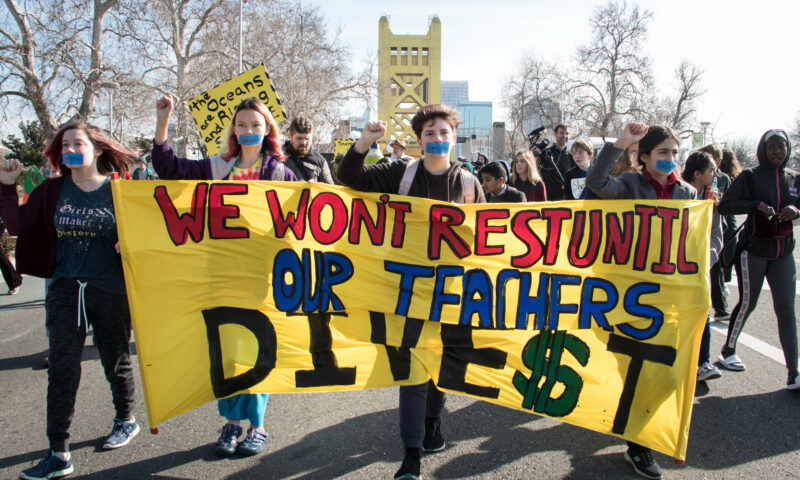

The proposed legislation would direct the state’s public pension funds to cease investment in oil, gas and coal companies.


Co-published by MapLight and Fast Company
Under Republican governors, two states pumped hundreds of millions of dollars of pension cash into a high-risk hedge fund that took control of the National Enquirer’s parent company, American Media Inc.
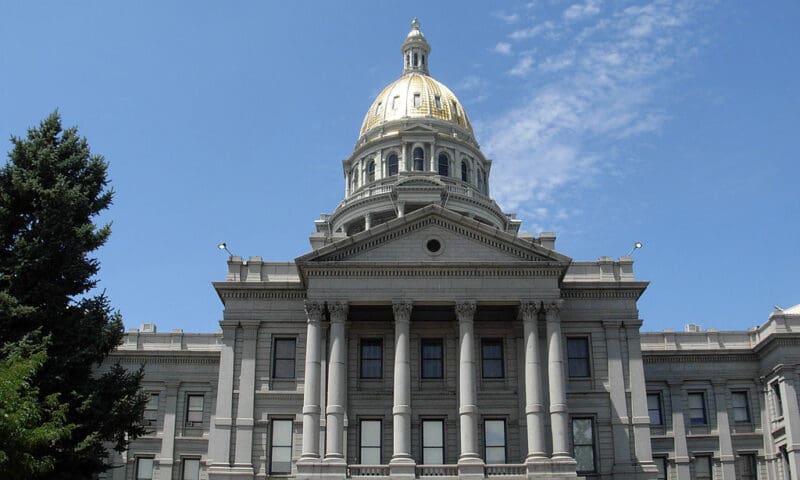

Co-published by Westword
Colorado lawmakers passed landmark legislation Wednesday night reducing pension benefits for thousands of teachers, firefighters, cops and other public sector workers.
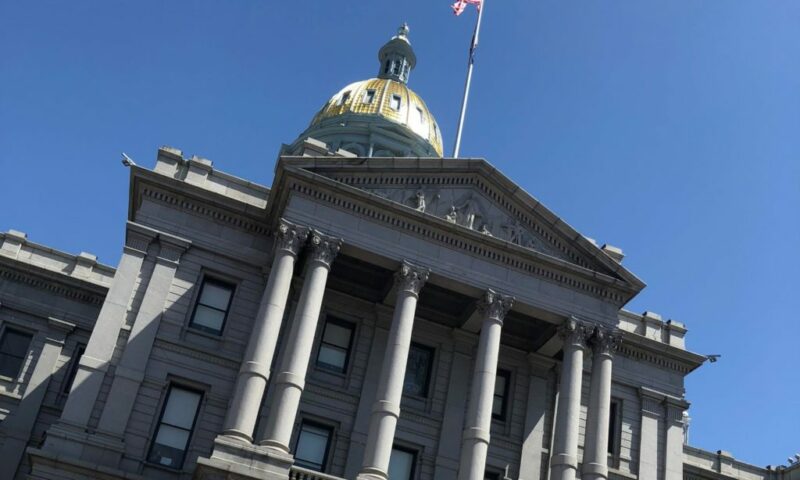

Co-published by Westword
Pension officials across America have been willing to use retirees’ money to pay huge fees for investments that may not beat low-fee stock index funds, but seem to reduce politically problematic volatility.


Co-published by Westword
While calling on public employees to sacrifice, Colorado’s legislators have plowed one-fifth of these employees’ retirement savings into “alternative investments” that yield subpar returns.


As next week’s June 15 budget deadline looms, legislative leaders hammering out differences between the Assembly and Senate versions of this year’s $171 billion budget for the fiscal year that begins July 1 will also be deciding the fate of retirement security for future University of California workers.
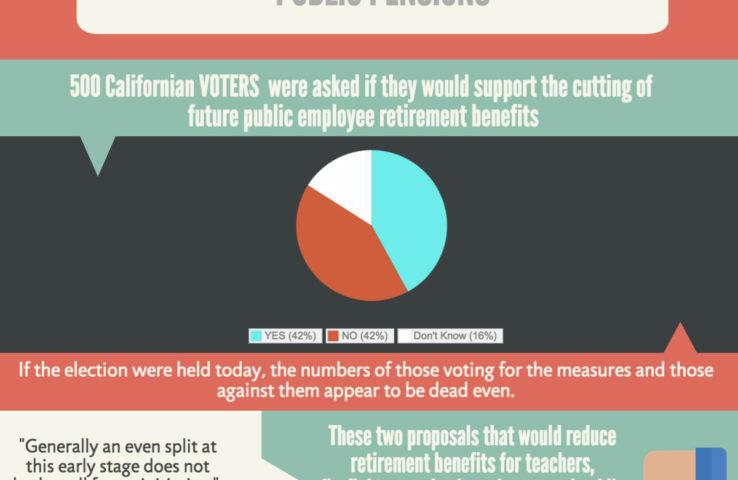
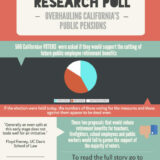
See Dan Braun and Bill Raden’s report on the Capital & Main poll.
Read other Capital & Main stories on pension-cutting ballot proposals in California.
» Read more about: Infographic: Public Pension Ballot Proposals' Tepid Support »


Chuck Reed today declined to address the findings of a Capital & Main poll that showed weak support for two Reed-created ballot initiatives aimed at reducing pension benefits for California’s public employees. If either measure receives the necessary number of petition signatures to be placed on the 2016 ballot, it will face fierce opposition from organized labor.
The poll, conducted by David Binder Research, was released yesterday and showed that if an election were held today, the two measures would win between 40 and 42 percent of the vote. The survey sampled 500 likely voters and has an error margin of plus or minus 4.4 percent.
“I never make statements based on other people’s polling,” Reed told Capital & Main. “Especially in a political environment. We’ll make our decisions based on our own polling.”
Drafted by Reed, a former Democratic San Jose Mayor, and former Republican San Diego City Councilman Carl DeMaio,
» Read more about: Chuck Reed: No Comment on Weak Ballot Polling Numbers »


A pair of potential ballot initiatives written to overhaul California’s public pensions could face a rough road, according to a new poll.
The results from a Capital & Main-David Binder Research poll of 500 likely voters shows that if the election were held today, the numbers of those voting for the measures and those against them appear to be dead even. Those numbers are not what pension-reduction advocates had hoped for going into the 2016 election cycle.
Drafted by former Democratic San Jose Mayor Chuck Reed and former Republican San Diego City Councilman Carl DeMaio, the so-called Voter Empowerment Initiative, and its sibling, the Government Pension Cap Act, received their official summary language (though not their official titles) from the state attorney general last week. Low numbers and lack of support among DeMaio’s fellow Republicans had already forced the pair to abandon a previous effort,
» Read more about: Breaking News: Poll Shows Pension Ballot Measures Already in Trouble »
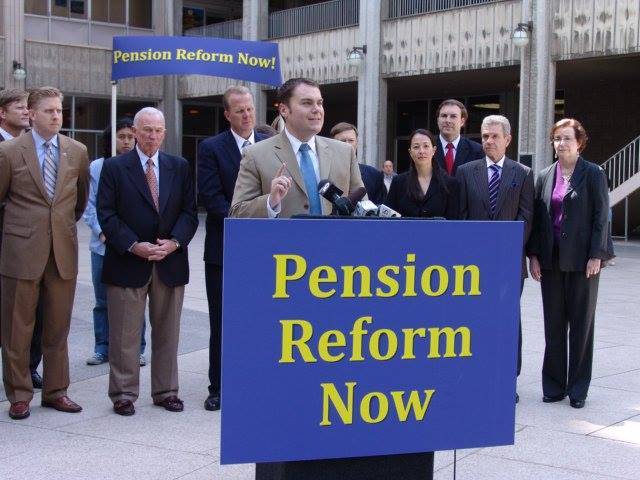
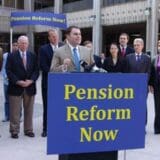
Backers of a proposed statewide ballot measure that would radically change the way wages and pensions of California’s government employees are formulated have begun an email campaign seeking pledges of support for the measure – as well as volunteers to circulate signature petitions when they become available in a few weeks.
The pension activists have 180 days from August 11, the date Attorney General Kamala D. Harris assigned a full title and ballot summary to the measure, in order to qualify it for the November, 2016 election.
Such email campaigns can help an initiative qualify for the state ballot if coupled with other efforts, Mike Madrid of Grassroots Lab, a Sacramento-based public affairs group, told Capital & Main by phone. “But if it is the only thing you are doing the chances for success are slim.”
In ballot-box politics, the bottom line is money.
» Read more about: Leaders of Pension-Cutting Ballot Proposal Look for Supporters Online »


On Tuesday California Attorney General Kamala D. Harris released the full title and summary text for the Public Employees Pension and Retiree Healthcare Benefits Initiative Constitutional Amendment. The title is a mouthful, but the initiative’s wording is just six sentences long.
Its first two lines read: “Eliminates constitutional protections for vested pension and retiree healthcare benefits for current public employees, including those working in K-12 schools, higher education, hospitals and police protection, for future work performed. Adds initiative/referendum powers to Constitution, for determining public employee compensation and retirement benefits.”
Crucially, Harris omits mention of “empowering” voters — a main selling point that had been advertised by former San Jose mayor Chuck Reed, former San Diego City Councilman and Tea Party member Carl DeMaio, and four others. In June this group submitted their proposed ballot initiative to Harris as the Voter Empowerment Act of 2016. Harris’ new title weakens their cause,


On Tuesday, California Attorney General Kamala Harris will release the official title and summary that will appear on the 2016 ballot for former San Jose mayor Chuck Reed’s latest statewide public-sector pension cutting initiative.
That language will finally end speculation on how far Harris will go in describing the sweeping scope of the proposed constitutional amendment. Legal analysts have charged that it contains a hidden trigger aimed at not just slashing pension benefits but annihilating 60 years of state pension law along with the vast retirement systems that together guarantee the retirement promises made to California’s public employees.
Initial clues as to what might appear on the 2016 ballot emerged last week as the first formal responses by state officials to the proposed measure began to trickle in.
The stakes for all Californians in the so-called “Voter Empowerment Act of 2016” couldn’t be higher.
For Reed and his supporters,
» Read more about: Countdown to Disaster: Grim Official Estimates on 2016 Pension Cutting Measure »


When Democratic former San Jose mayor Chuck Reed and Republican ex-San Diego councilmember Carl DeMaio finally unveiled the language for a promised attempt at getting a statewide public pension cutting measure to 2016 voters, the expectation was that Reed II would be a reined-in and more realistically-framed version of Reed I – last year’s failed attempt at undermining the public pension system.
That try for the 2014 ballot was aborted after Attorney General Kamala Harris slapped it with a candid, albeit politically untenable summary that frankly described the proposed constitutional amendment as targeting longstanding legal rights—rights that protect the pensions and retirement health care of the 1.64 million Californians enrolled in the state’s public pension systems.
But even veterans of the state’s public-sector retirement wars were unprepared for the sheer scale of what awaited them this time around.
» Read more about: Measure of Deception: CA Initiative Would Gut Retirement Benefits for Millions »


The newest front in the battle over the retirement security of California’s public employees opened June 4 with the release of the language for a proposed ballot initiative that would rewrite the state’s constitution to virtually outlaw traditional defined-benefit pension plans for future state and municipal workers.
The measure, dubbed “The Voter Empowerment Act of 2016,” would effectively shift all new public employees from the various defined-benefit plans currently in place to 401(k) plans, beginning in 2019. It would then lock those plans in place by adding the burden of direct voter approval on government employers who want to continue offering traditional pensions after 2019.
Also see in this series:
The security offered by defined-benefit retirement plans has been typically used by government employers to compete with the private sector in recruiting quality candidates for public workforces.
» Read more about: New Retirement Ballot Proposal: The Language of Cuts »


On April 10, the libertarian Reason Foundation held its strategic “pension summit” in Sacramento’s Sterling Hotel to reduce government workers’ retirements. A proposed 2016 state ballot measure to cut public employee pensions by shifting them from traditional, defined-benefit pensions to more volatile 401(k)-type retirements took center stage. At that point, the measure was months away from being submitted to the state Attorney General’s office for a title and approval of its wording.
The measure is co-authored by Chuck Reed, the former Democratic mayor of San Jose who successfully pushed a 2012 city pension-cutting ballot initiative, Measure B. Reed headlined the summit, which was open to the media only on an off-the-record basis.
“The political support is the relatively easy part,” Reed told Capital & Main after the summit concluded. “As long as you are solving a problem the public is willing to support it in the form of pension reform.”
But not everyone shares Reed’s optimism.
» Read more about: In Their Own Words: Pension Disrupters Speak »


Last month former San Jose mayor Chuck Reed took the first step toward offering a promised draft of a 2016 public pension cutting initiative that, he has hinted, will target the California Public Employees’ Retirement System. CalPERS manages the retirement and health benefits for more than 1.6 million California public employees, retirees and their families. Reed tried to get a pension initiative on the ballot in 2014, only to withdraw the measure when state attorney general Kamala Harris assigned it a ballot description that Reed and his allies believed would hurt their chances with the electorate.
This time, however, Reed could find his campaign in danger from an unexpected source – conservative allies who might be worried that his initiative’s very presence on the ballot will draw huge numbers of liberal and union voters – who would then also vote against conservative candidates running for local and state office.
» Read more about: Pension Cutters' 2016 Ballot Obstacle: Voters »


Capital & Main recently looked at a spate of negative headlines about public pension funds, spurred by data that State Controller John Chiang released on his new public data site at ByTheNumbers.sco.ca.gov.
Chiang has served as Controller since 2006, acting as California’s Chief Fiscal Officer. He was recently elected as State Treasurer and will switch to that office next year. In both roles, Chiang sits on the Boards of Administration for the two largest public employee funds, California Public Employees’ Retirement System (CalPERS) and the California State Teachers’ Retirement System (CalSTRS).
Capital & Main followed up with the Controller to ask about the state of pension systems in California and how those systems should be looking to the future.
[divider]
The data you posted on your By the Numbers site led to many existing critics of pension saying “See?
» Read more about: Controller John Chiang on the Future of California’s Public Pensions »